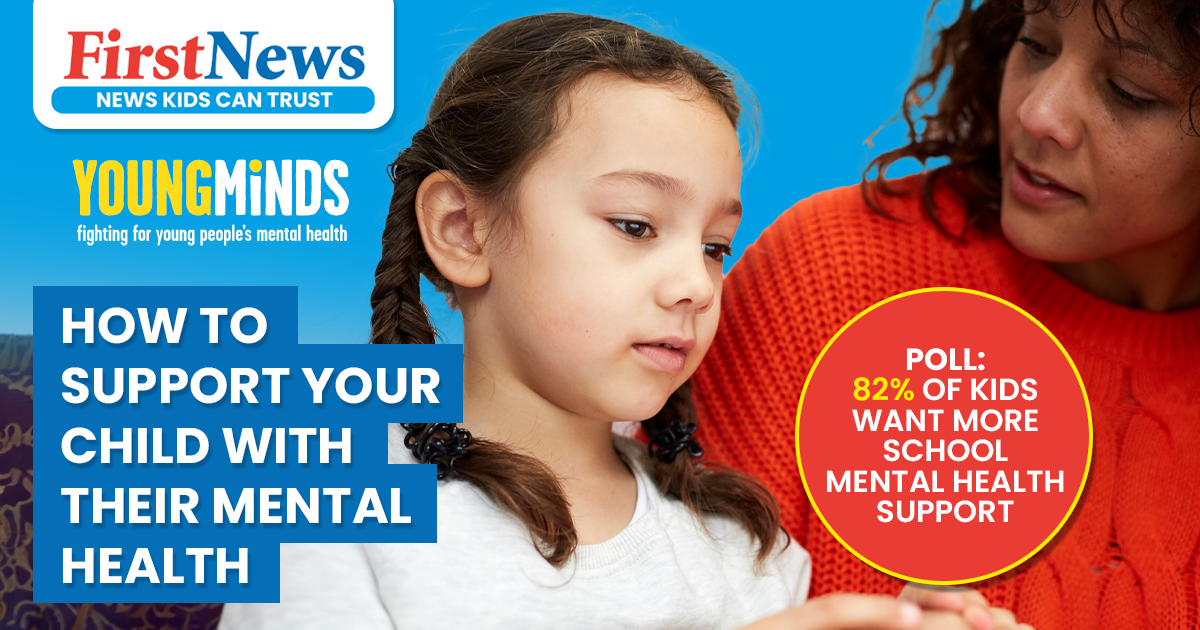How to Support Your Child With Their Mental Health
Published: 1st February 2024
Updated: 12th June 2025
Published: 1st February 2024
Updated: 12th June 2025
Discover our top tips on how best to support your child’s mental health at home, in collaboration with Young Minds.

Today’s children and young people are growing up with a variety of pressures which are taking a toll on their mental health, from the impacts of the pandemic to the expectation to do well at school. It can be tough to know what to do when your child is struggling with their mental health, but being there for them and talking can help them know they are not alone.
Right now, there are more than a million young people referred by doctors and other professionals to mental health services each year, with many having to wait an increasingly long time to get help while their mental health deteriorates. The impact this has can be devastating.
Currently, only a third of schools have a Mental Health Support Team in them. First News and Young Minds spoke to 2,250 school children and our poll showed a huge 82% (1,853) of children said there should be more mental health support in school and just 18% (397) said no.
NHS data shows one in five children aged eight to 16 have a probable mental health condition. That’s five children in every classroom.
Knowing how to talk to your child when they’re struggling with their mental health can be tough, but being there for them and talking can help them know they are not alone.
Talking to your child about their mental health can be hard, and they might struggle to open up to begin with. It doesn’t matter what topic the conversation starts with, it’s about the opportunity it gives you both to talk about feelings and to provide comfort.
Starting with an activity you both enjoy can help create a relaxed environment. When your child opens up, listen in a non-judgmental way about how they are feeling. Remind them it’s okay for them to feel scared or unsure and try to reassure them in an age-appropriate manner. Remember, you do not need to know all the answers, but talking things through can help them feel calmer.
It is difficult to hear your child is struggling with their mental health. If you’re worried, be open about how you want to support them. It’s really important your child can share what they think may help, so you can make a plan of action together. You could consider making an appointment with their GP. Talking to their school or college about how your child is feeling can also help and you can find out about the support they offer.
We know talking isn’t always easy and you might worry about saying the wrong thing or making things worse. It’s important to remember your child doesn’t need you to always get it right, they just need to know you are there.
If your kids are going through something right now, know that their voice matters and help is out there. Whether they’re struggling with their mental health or not, there are ways for them to use their voice to fight for changes that will make a difference for other children and young people. This year, Young Minds is going to be campaigning for more support in schools and much more besides – join them to take action in the future.
To read more helpful articles like this visit the Talking Points section of our website or sign up for First News at home and at school!
First News reaches millions of young readers every week, at home and at school. Our age-appropriate news stories and activities spark curiosity, build media and information literacy skills and empower children with the tools to navigate the world.